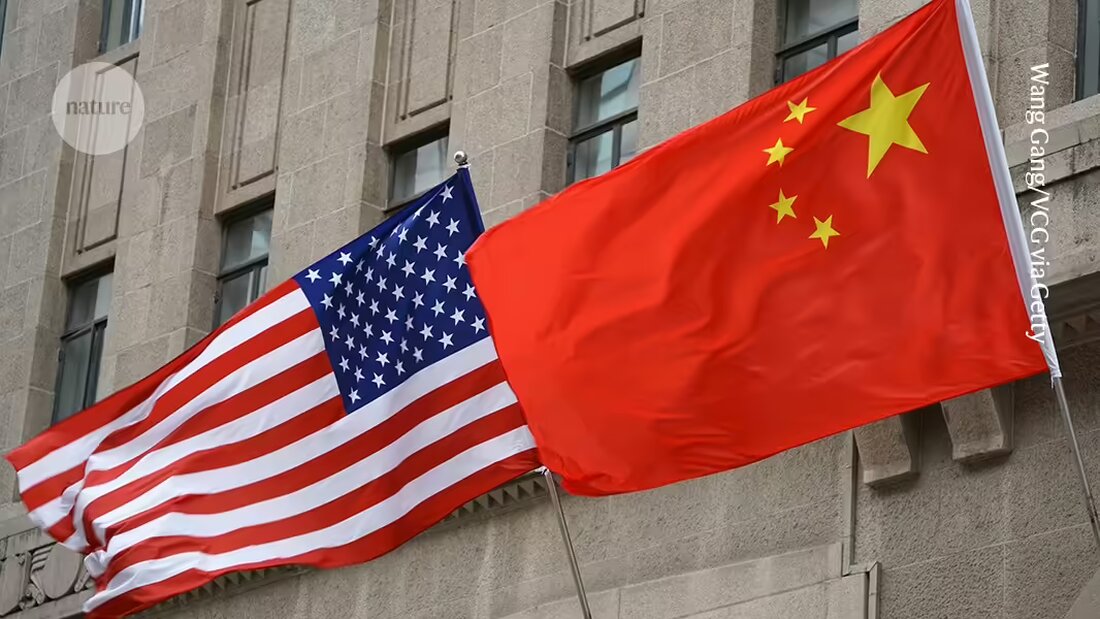The United States and China have the deadline to renew an agreement regulating their cooperation in science and technology, missed. Nevertheless, they are close to an agreement on howNaturehas experienced.
research collaborations between the two countries. Two six-month extensions have been announced so far to complete negotiations. But the final deadline of August 27th passed without any progress.
A spokesman for the US State Department saidNaturethat both countries continue to communicate.
Sources familiar with the negotiations but not directly involved say that despite tensions between the two countries, signs point to a renewal — but the deal is expected to be narrowed in scope. They also believe that the upcoming US presidential election could have an impact on the delay, as cooperation with China is a politically sensitive issue that could have an impact on voters' votes.
"A deal is close. They are working on the final wording," said Denis Simon, a non-resident fellow at the Quincy Institute for Responsible Statecraft, a foreign policy think tank in Washington, D.C.
"China is willing to renew the US-China agreement to facilitate bilateral cooperation," said Tang Li, a science and innovation policy researcher at Fudan University in Shanghai.
A cooling of relationships
The original agreement was signed on January 31, 1979 by then US President Jimmy Carter and then Premier of China Deng Xiaoping to improve diplomatic relations. However, relations have deteriorated since the agreement was last renewed in 2018. The administration of then US President Donald Trump began this year a program called the China Initiative, which aimed to prevent foreign spies from breaking into U.S. research labs and technology-based companies. In June last year, members of the US House of Representatives, who are members of Trump's political party, the Republicans, called on US Secretary of State Antony Blinken to reject the agreement entirely, saying it posed a threat to national security. Last month, both Democratic and Republican lawmakers defeated the House a law, which, if passed, would require the State Department to notify the U.S. Congress in advance if it plans to renew or extend the agreement, justifying the reasons for doing so and outlining possible risks.
If the agreement is renewed, it is likely to reflect the cooling of relations, with collaboration limited in research areas on global challenges such as climate change, public health and food security, Simon says. Marina Zhang, an innovation researcher specializing in China at the University of Technology Sydney in Australia, agrees, adding that the two countries may also find common ground in renewable energy research. However, in highly competitive areas where the U.S. fears China could exploit U.S. know-how — such as quantum computing, artificial intelligence and advanced semiconductor chip technology — Zhang expects the collaborations to be subject to certain limitations.
Some observers believe the US wants more clarity on access, ownership and sharing of data generated during research collaborations. They also want to ensure the personal safety of scientists traveling to China for joint projects, says Simon.
“China wants to maintain the status quo,” says Zhang. “But China will not fully commit to the terms proposed by the United States, so it will be a difficult negotiation.”
Elections are coming
A US State Department spokesperson said in a statementNature, that the agency is negotiating on behalf of the US government to “modernize” the agreement and “reflect the current state of bilateral relations.”
Deborah Seligsohn, a specialist in U.S.-China relations at Villanova University in Pennsylvania, is pleased that U.S. President Joe Biden's administration has listened to scholars who say the agreement is important and is continuing negotiations. It is crucial that both sides can limit cooperation under the agreement to areas where they are comfortable, she says.
Sources that come withNaturespokespeople think an announcement about the deal is unlikely to come before the upcoming U.S. presidential election in November. That's because both major U.S. political parties — despite their differences on many issues — agree that China, which has become a global leader in science and technology, poses a threat to U.S. dominance, Li says. "The Biden administration is cautious about making a deal with China, especially at this time," she says, because it's not an issue likely to win votes for Biden's party, the Democrats.
With Biden no longer running for president, it is unclear whether a new administration will change the direction of the deal.
Trump, the Republican presidential candidate, was antagonistic towards China. However, his government renewed the agreement in 2018. Kamala Harris, the Democratic candidate and incumbent US Vice President, is part of the Biden administration, which the China Initiative ended in 2022, but continues to put competitive pressure on the country through tariffs and other measures. Tim Walz, the Minnesota governor and Harris' partner, has a history of working with China, although he wouldn't play a major role in foreign policy as vice president, Simon says.
“Who knows what will happen,” says Seligsohn.

 Suche
Suche
 Mein Konto
Mein Konto

